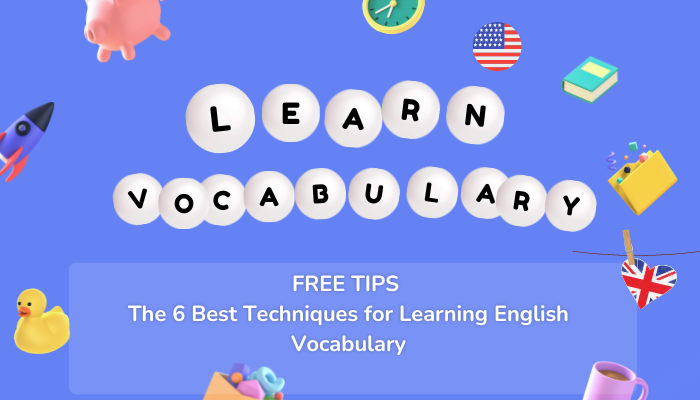Great site to keep my english skills updated for work and travel. I am really enjoying the lessons!
Maria C
 Argentina
Argentina


Vocabulary is one of the pillars of language learning and especially significant for the advanced learner. Once you are familiar with the basic structures of your target language, you'll want to start saying and understanding more words!
Here are some top techniques for learning vocabulary.
1) Write, Look, Cover, Repeat (WLCR)
This is the ultimate classic. Vocab learning has always been a notebook and pen type exercise. The physical motion of writing something down is very useful as it satisfies the needs of haptic learners. Take a pad, draw a vertical line in the middle and write the word on one side in your native/source language and on the other side in your target language. Memorise the list, then cover one side and tick off all that you remember. Then repeat.
Supercharging your WLCR
Add another Write step for all the words you couldn't remember first time round, then start again. And repeat. The list of words you can't remember should get smaller every time.
Satisfy your aural learning style through the version write, mumble, cover, repeat - speaking out each target language word every time. Or record them all and listen back to the vocabulary list a few times.
Colour code your list, for example to highlight different genders or word types.
2) Get Them All
This technique is very well suited to learning by immersion. You acquire new words by carrying a dictionary everywhere (anything electric has them on these days) and then making a note of new words wherever you come across them. These form your daily vocabulary list. Learn the words, revisit the source, move on to a related text or video for repetition. Keep going until you remember all (or 80%, 70%...it's your choice!) of the words from your list, then find a new source. Your memory will build the connection between source and vocab, allowing you to remember the word by where you learnt it from.
3) Flashcarding
Flashcards are great for learners who work very well with visual clues. You can either make sets combining an image with a word in the target language, or just write the words in source and target language. Different colours come in handy here.
What makes Flashcarding different from WLCR is that you cannot rely on memorising words by order - they come at you at random and you must be ready for anything.
4) Work In A Context
Memory research tells us that building links between data helps us remember things and the way to make sense of that is to put the vocab into use. A classic memory technique would be to connect every word with a strong image. Alternatively, come up with a story that includes all your vocabulary.
Work in blocks of different topics, for example you can focus on cookery for a few weeks. That way, the most common words will reoccur and you learn not only the word, but how to use it.
Again, immersion is key here and make sure you produce language in context. Write a full sentence using your new word. Update your Facebook in the target language. Use it 5 times in a conversation. Whatever it takes, just make sure you have satisfied both repetition and context.
5) Stickies Everywhere
Sticky notes were made to serve as reminders, so we shall use them for that! Put contextual vocabulary in strategic places, or write yourself little messages in the target language. If you have flashcards or prefer larger pieces of paper, why not put your pieces of paper into a clear plastic envelope and stick them in the shower?
6) Study Linguistics
Many words are made up of parts of other words. So this one requires a bit of study, but it will make your vocabulary learning the smartest it has ever been. Become familiar with prefixes and suffixes, word roots and common sources of target language words. For example, many European languagesare Latin-based and their words change through little add-ons.